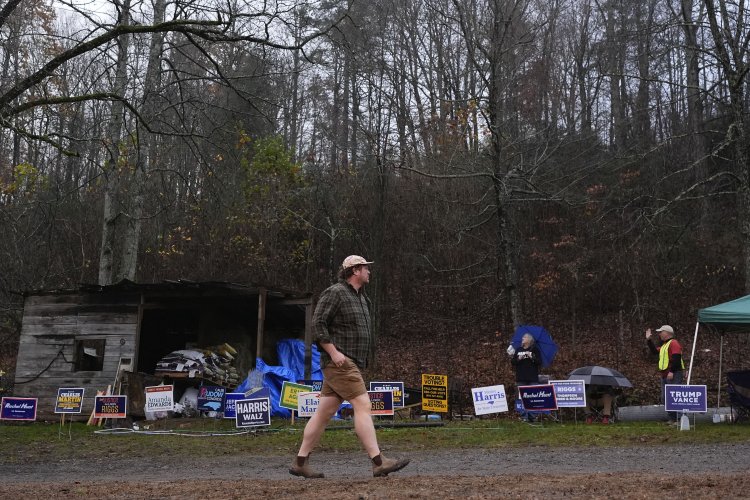North Carolina's highest court allows for certain ballots to be discarded in disputed state Supreme Court election
The decision made by the Republican majority may create an opportunity for a GOP candidate to challenge and potentially reverse a perceived defeat.

The remarkable ruling from the Republican-controlled court has drawn strong criticism from Democrats and even from a sitting GOP justice in the state, and it may lead to further legal battles in federal court.
Griffin, a state appellate judge, has been contesting his narrow defeat to incumbent Democratic Justice Allison Riggs since November, where he trailed by fewer than 1,000 votes. After the election, Griffin asserted that approximately 65,000 votes in the state were improperly cast and should be invalidated.
He claimed that three key categories of votes should be tossed: those from voters with incomplete voter registration data; military and overseas voters who failed to meet the state’s voter ID requirements; and overseas voters who have never lived in the state or shown an intent to do so, primarily those related to expats or service members.
Disqualifying large numbers of ballots post-election would represent an almost unprecedented action, criticized by voting rights groups, Democrats, and even some Republicans as a violation of due process and an alteration of election rules after the fact.
Currently, the state court has a GOP majority of 5-2, and Riggs recused herself from the case.
Last week, a state appellate court determined that all three categories of votes could potentially be disqualified. While the majority opinion considerably narrowed this finding, there is still a possibility that Griffin can eliminate enough votes to alter the election outcome.
On Friday, the state’s high court ruled that the majority of ballots from approximately 60,000 voters with incomplete registration data — including those lacking driver’s license numbers or Social Security numbers — should be counted for this election, attributing the issue to the state board of elections.
However, the court's ruling places the other two categories of voters at risk. It ordered that military and overseas voters who did not meet ID requirements must verify their identity within 30 days — a "cure process" — or their votes may be nullified, while affirming the lower court's decision that "never resident" ballots, totaling a few hundred votes, should be invalidated.
The majority decision on Friday drew sharp dissent from two justices: Anita Earls, the only Democrat involved in the case, and Republican Justice Richard Dietz.
“I expected that, when the time came, our state courts surely would embrace the universally accepted principle that courts cannot change election outcomes by retroactively rewriting the law. I was wrong,” Dietz expressed. “By every measure, this is the most impactful election-related court decision our state has seen in decades.”
It remains unclear how many voters will need to undergo the cure process. Griffin originally challenged votes in specific Democratic-leaning areas, but the court's recent opinion does not address statewide results.
“As a result of the action taken by this Court in this matter, the vote of an overseas or military voter who is registered in Wake County and who voted pursuant to the laws applicable at the time is counted. However, the vote of an overseas or military voter who is registered in Guilford County is presumed to be fraudulent,” Earls remarked regarding the voters required to correct their ballots. “Explaining how that is fair, just, or consistent with fundamental legal principles is impossible, so the majority does not try.”
The state Democratic Party has vowed to contest the ruling in federal court, arguing that it sets a precarious precedent that could undermine trust in elections both in North Carolina and nationwide.
“Everyone needs to understand how deeply dangerous this is,” the party stated in a release. “Elections must mean something — but if this precedent holds, any candidate who doesn’t like losing will litigate American democracy into the ground.”
Emily Johnson for TROIB News












